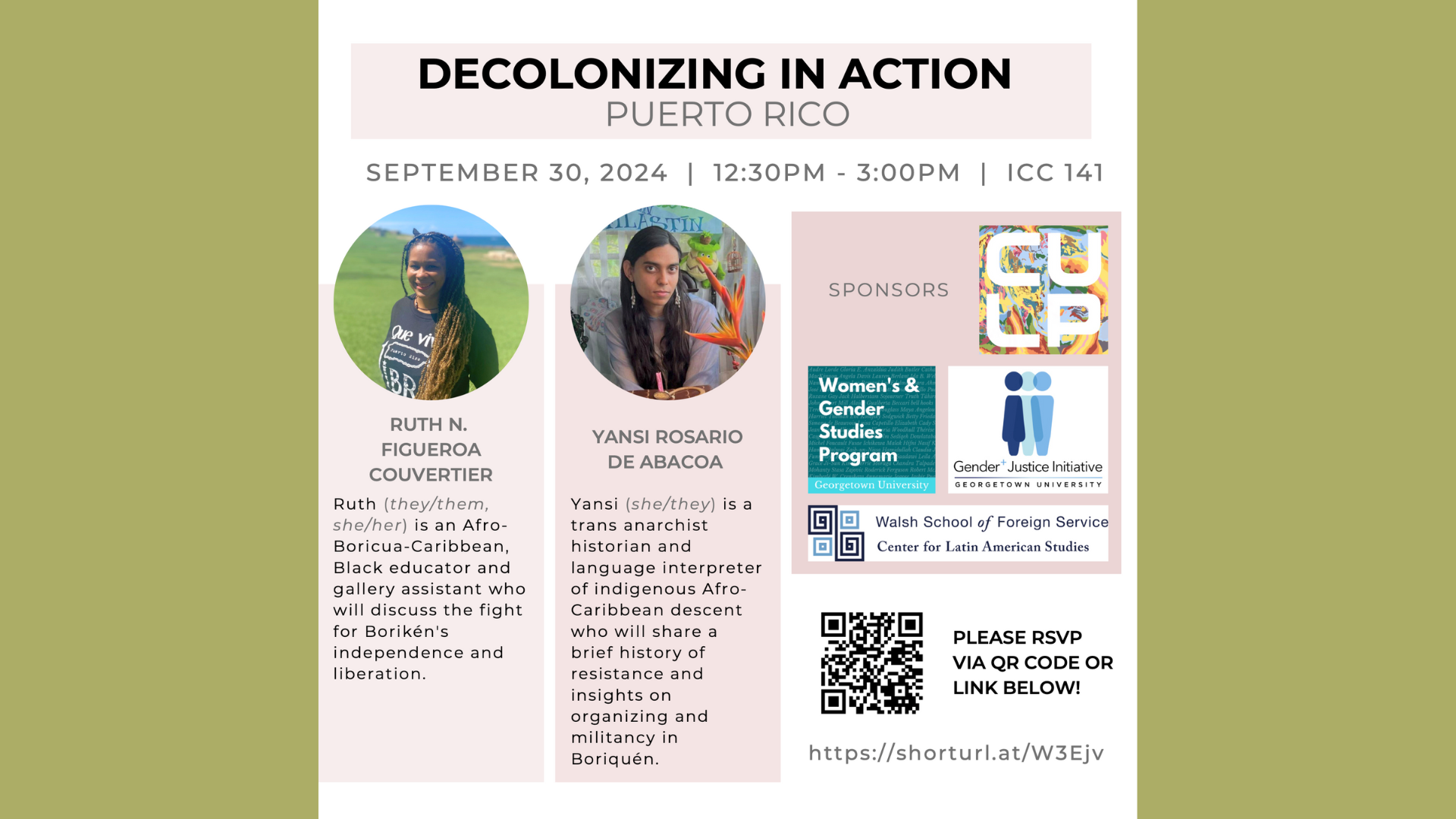Decolonizing in Action: Puerto Rico
Featuring Yansi Rosario de Abacoa and Ruth N. Figueroa Couvertier
Monday, September 30 | 12:30 PM – 3:00 PM ET | In-Person Event
Location: CCAS Boardroom (ICC 141), Intercultural Center, Georgetown Main Campus
Register, Required, and seating is not guaranteed. Snacks & Beverages will be provided
Presented by Culture and Politics, SFS, Gender⁺ Justice Initiative, Women’s & Gender Studies, and the Center for Latin American Studies.
Join an in-depth conversation on Puerto Rico’s ongoing struggle for decolonization, led by two powerful voices in the movement: Yansi Rosario de Abacoa and Ruth N. Figueroa Couvertier. The speakers will discuss Puerto Rican history, colonialism, and resistance, with a focus on grassroots efforts addressing anti-Blackness, LGBTQI+ rights, environmental justice, and mutual aid. The conversation will explore how Puerto Ricans continue to resist colonialism and build community sovereignty in the face of disaster capitalism and ongoing environmental crises.
About the Speakers:
Yansi Rosario de Abacoa (she/they) is a transfem nonbinary anarchist historian, language interpreter, educator, and researcher of Indigenous Afro-Caribbean descent from Arecibo, currently based in Ponce, Boriquén. She has been involved in the UPR’s student movement, community organizing, mutual aid, hurricane relief, and environmental, rural agricultural, anti-colonial, anti-austerity, and emancipatory struggles.
Ruth Noelia Figueroa Couvertier (they/them, she/her) is an Afro-Boricua-Caribbean, Black socialist and educator advocating for Puerto Rico’s independence and the liberation of occupied territories. Based in Loíza, they work for Corredor Afro, supporting local arts and education, while also serving as a gallery assistant.
About the Moderator:
Dr. Melinda González (she/her) is an Afro-Indigenous / Puerto Rican scholar, poet, and Assistant Professor in the CULP major at Georgetown University. Her work focuses on environmental anthropology and disaster studies, examining how marginalized communities are affected by environmental crises. Dr. González utilizes decolonial and Indigenous research methods to explore the intersections of race, class, and gender in disaster recovery.
